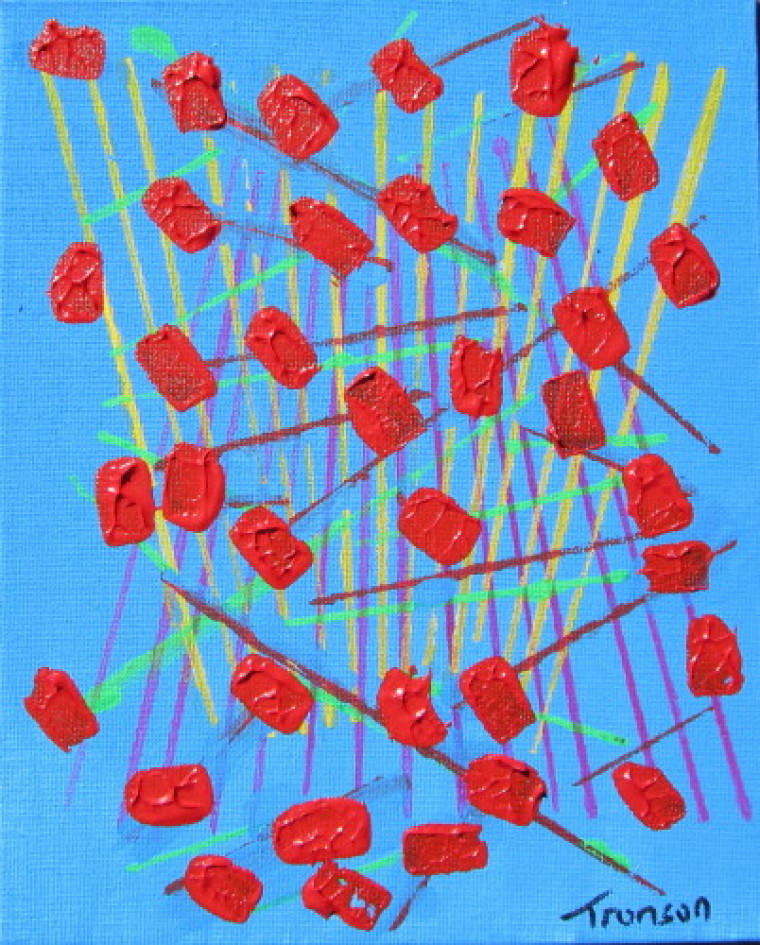
Under the auspices of the CSIRO, Australia has won a court case to reap money for the use of devices that allow millions of people all over the world to use wireless internet connections (WiFi). The team of scientists involved in the discovery, innovation and commercialisation has already won awards here in Australia; now the money is following the awarding of world-wide patents. (www.smh.com.au)
He feels that justice has finally been done, as stated in Proverbs 21:15 (ESV): "When justice is done, it is a joy to the righteous but terror to evildoers."
Mark Tronson recalls that this finally puts to test the attitudes he heard all around him as he was growing up in the 1950s. There was a general opinion about that Australians were not good at commercialising or otherwise advertising the outcomes of their scientific and engineering inventions and discoveries. They were, however quietly proud of being in the forefront of discovery and innovation; perhaps as a legacy of needing to 'make do' when in the outback with few resources.
At that time, Australian scientists could not get a doctorate (or found it extremely difficult) unless they studied overseas. The Australian population was small and struggling to recover from the shortages brought upon by WWII and did not have the resources or expertise to capitalise on inventions; and socially we were still very connected to Old England.
As the scientific community expanded and became more sophisticated, and doctorates could be won within Australian universities, people became more and more aware of our home-grown talent - but young, bright scientists still felt the need to prove themselves overseas, and many others found it difficult to gain finance to bring their inventions or discoveries out of the lab and into the marketplace.
This effect was known as the 'brain drain'.
In contrast, places like the United States, England and other European countries, China and even tiny Israel were seen to foster and finance their home-grown talent. Perhaps they put more resources into the commercialisation; or perhaps, thinks Mark Tronson; their self-image is more brash and less 'cringing' than our own.
He notes too, however, that the rapid expansion of scientific knowledge in these places during the 1960s was enabled by refugees and migrants from war-torn Europe to the USA, Israel and the UK where top-class scientists, beneficiaries of the technical education system in Europe, worked alongside colleagues from all over the world.
Science is applauded in Australia now
Mark Tronson has several relatives working in the scientific community and he knows that there is still a very international scientific community which includes Australians abroad and short-term researchers as well as long-term migrants here in Australia actually realising a 'brain gain'. It is the same in any laboratory, anywhere in the world.
It is sometimes a mere technicality to determine where the birth of an invention or discovery started. Three examples of Nobel Prizes illustrate this point:
• a 2011 Nobel Laureate Australian is Brian Scmidt, who was born in the United States;
• in 2009 Elizabeth Blackburn who was born in Tasmania and completed her education in England won a Nobel for the work she did in the United States, where she lives and is now a citizen;
• one of the 1996 Nobel Laureates was Australain Peter Doherty, shared with Rolf Zinkermagel from Switzerland who was working here temporarily.
Moreover, our Australian teams of young 17-year old student compete in the four International Science Olympiads each year, against teams from many, many other countries and each year they come home with swags of medals. He wonders why we don't see their pictures on the front pages every year when these competitions are held.
One of the thoughts he had was that maybe the scientific community is leading the way to world reconciliation processes. If so, it seems that Australians are at last realising how good they are in world terms, and perhaps this can help us to be just as proud of all our leadership efforts within the world at large.
Dr Mark Tronson is a Baptist minister (retired) who served as the Australian cricket team chaplain for 17 years (2000 ret) and established Life After Cricket in 2001. He was recognised by the Olympic Ministry Medal in 2009 presented by Carl Lewis Olympian of the Century. He has written 24 books, and enjoys writing. He is married to Delma, with four adult children and grand-children.
Mark Tronson's archive of articles can be viewed at www.pressserviceinternational.org/mark-tronson.html